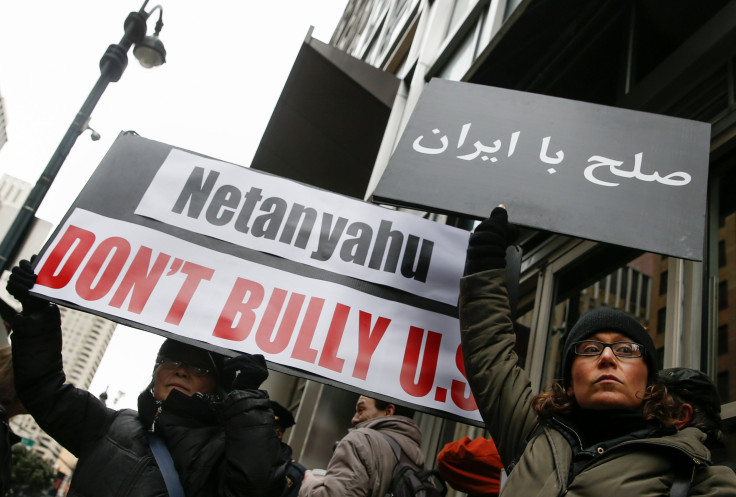US To 'Reassess' Diplomatic Protection For Israel At UN, After Netanyahu's Comments On Palestinian Statehood

The Obama administration is to “reassess” its diplomatic protection of Israel at the United Nations, following Israeli Prime Minister Benjamin Netanyahu's pre-election comments that he would block the creation of a Palestinian state. Shortly before Israel's parliamentary elections this week, Netanyahu said that a Palestinian state would not be established on his watch.
In the past, the U.S. has frequently used its veto power on the U.N. Security Council to block resolutions that condemned Israeli actions in the Middle East. The U.S. has, in particular, blocked U.N. moves to recognize a Palestinian state. Netanyahu subsequently reversed his position Thursday, stating that his views on a two-state solution to the Israeli-Palestinian conflict had not changed, but circumstances on the ground had. The White house, however, was unmoved by Netanyahu's recantation.
“Steps that the United States has taken at the United Nations had been predicated on this idea that the two-state solution is the best outcome. Now our ally in these talks has said that they are no longer committed to that solution. That means we need to re-evaluate our position in this matter, and that is what we will do moving forward,” White House spokesman Josh Earnest said Thursday.
In addition, in a telephone call Tuesday from President Barack Obama to Netanyahu, ostensibly for the U.S. leader to congratulate his counterpart on his election victory Tuesday, Obama suggested that the U.S. may stop using its veto power to shield Israel from condemnatory U.N. resolutions.
“The president told the prime minister that we will need to reassess our options following the prime minister's new positions and comments regarding the two-state solution,” a White House official, speaking on condition of anonymity, told Reuters.
On the eve of the Israeli elections, Netanyahu had warned that “Arab voters are streaming in droves” to the polls, in a bit to mobilize his right-wing base. And White House spokesman Earnest reportedly took pains to criticize some of Netanyahu's election rhetoric, even though reporters did not specifically ask him about it.
The U.S. was “deeply concerned about rhetoric that seeks to marginalize Arab-Israeli citizens,” Earnest said, according to the Los Angeles Times. “It undermines the values and democratic ideals that have been important to our democracy and an important part of what binds the United States and Israel together.”
Relations between the current U.S. and Israeli administrations have fallen to an all-time low. Netanyahu's acceptance of an invitation to address Congress from House Speaker John Boehner was seen by the White House as an attempt to circumvent the executive branch. Obama declined to meet with Netanyahu during his U.S. visit.
© Copyright IBTimes 2024. All rights reserved.






















